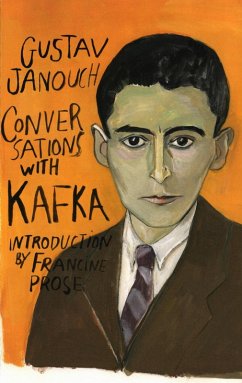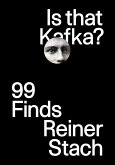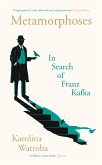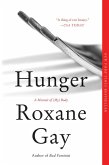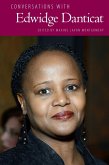A literary gem a portrait from life of Franz Kafka now with an ardent preface by Francine Prose, avowed fan of Janouch's odd and beautiful book.
Gustav Janouch met Franz Kafka, the celebrated author of The Metamorphosis, as a seventeen-year-old fledgling poet. As Francine Prose notes in her wonderful preface, they fell into the habit of taking long strolls through the city, strolls on which Kafka seems to have said many amazing, incisive, literary, and per- things to his companion and interlocutor, the teenage Boswell of Prague. Crossing a windswept square, apropos of something or other, Kafka tells Janouch, 'Life is infinitely great and profound as the immensity of the stars above us. One can only look at it through the narrow keyhole of one's personal experience. But through it one perceives more than one can see. So above all one must keep the keyhole clean.'
They talk about writing (Kafka's own, but also that of his favorite writers: Poe, Kleist, and Rimbaud, who transforms vowels into colors) as well as technology, film, crime, Darwinism, Chinese philosophy, carpentry, insomnia, street fights, Hindu scripture, art, suicide, and prayer. Prayer, Kafka notes, brings its infinite radiance to bed in the frail little cradle of one's own existence.
Gustav Janouch met Franz Kafka, the celebrated author of The Metamorphosis, as a seventeen-year-old fledgling poet. As Francine Prose notes in her wonderful preface, they fell into the habit of taking long strolls through the city, strolls on which Kafka seems to have said many amazing, incisive, literary, and per- things to his companion and interlocutor, the teenage Boswell of Prague. Crossing a windswept square, apropos of something or other, Kafka tells Janouch, 'Life is infinitely great and profound as the immensity of the stars above us. One can only look at it through the narrow keyhole of one's personal experience. But through it one perceives more than one can see. So above all one must keep the keyhole clean.'
They talk about writing (Kafka's own, but also that of his favorite writers: Poe, Kleist, and Rimbaud, who transforms vowels into colors) as well as technology, film, crime, Darwinism, Chinese philosophy, carpentry, insomnia, street fights, Hindu scripture, art, suicide, and prayer. Prayer, Kafka notes, brings its infinite radiance to bed in the frail little cradle of one's own existence.
Dieser Download kann aus rechtlichen Gründen nur mit Rechnungsadresse in A, D ausgeliefert werden.

